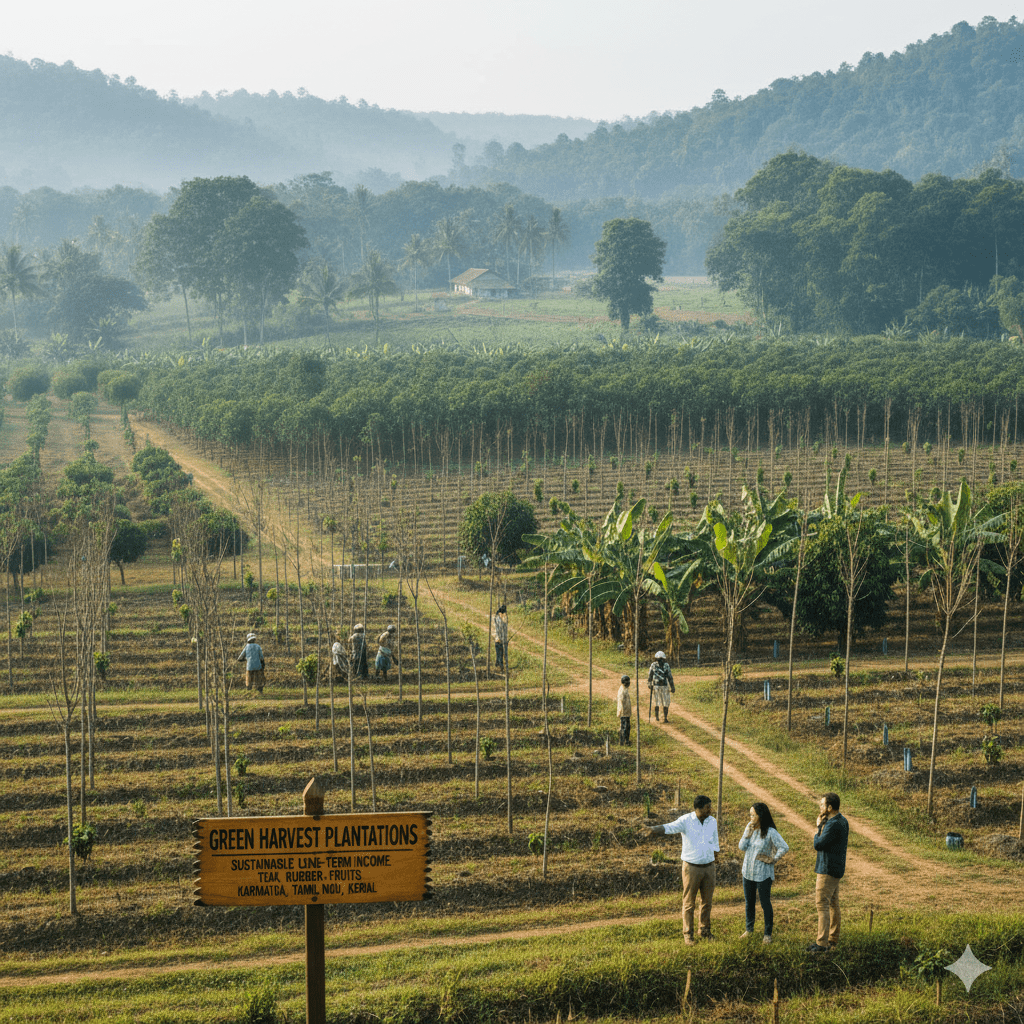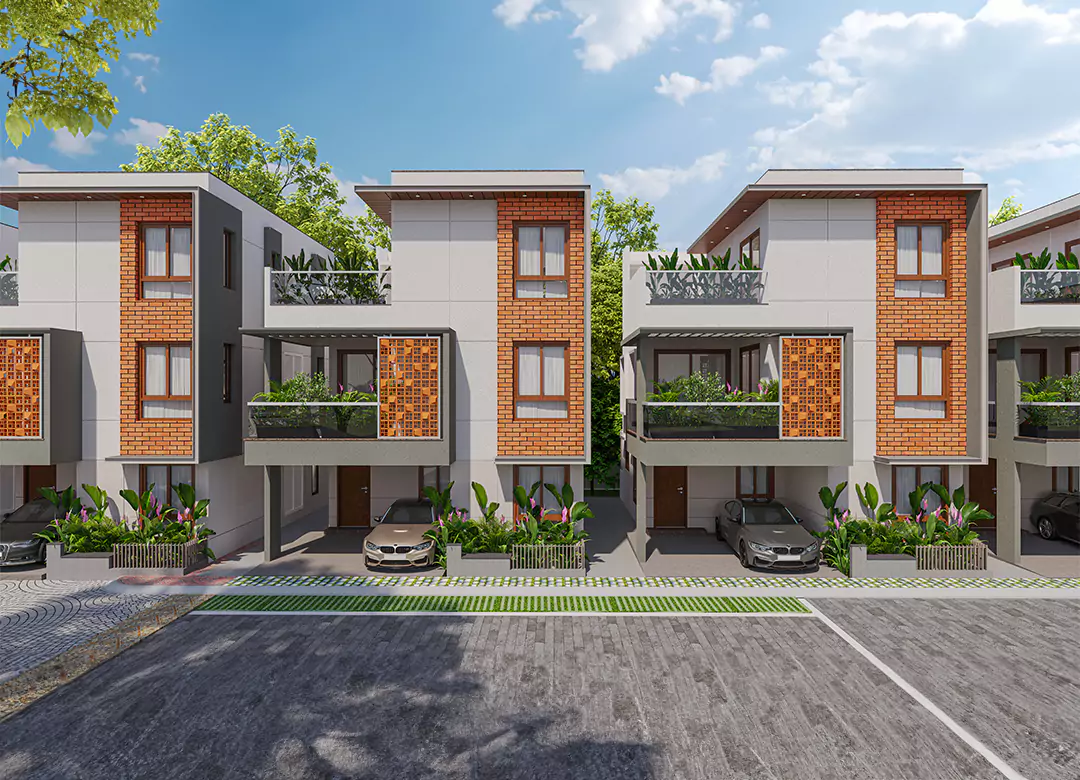Planning to Buy Land? Don’t Rush, Here’s What You Need to Know
Buying land is one of the most powerful financial decisions you can make, but it’s also one of the easiest to get wrong.
Many first-time investors rush to buy land without understanding what kind of land suits their goals, and that’s where costly mistakes begin.
Land ownership can mean different things; it could be a foundation for your dream home, a peaceful weekend retreat, a long-term investment, or even a commercial venture.
Each category has its own value, growth potential, and legal considerations. Before you buy land, you need clarity on what you’re really aiming for.
1. Residential Land – For Building Homes and Villas
If your vision is to build your dream home or a villa community, residential land is the right direction.
This type of land is zoned for housing development and comes under residential-use regulations.
Pros:
- Ideal for constructing independent homes, duplexes, or villas.
- Higher appreciation potential in urban and semi-urban areas.
- Easier access to utilities and infrastructure like roads, water, and electricity.
Cons:
- Requires significant upfront investment.
- Legal checks (RERA approval, zoning, and land conversion) are crucial.
Buying residential land near upcoming infrastructure, like the Peripheral Ring Road in Bengaluru or Neopolis SEZ in Hyderabad, often leads to faster appreciation. But even then, you should buy land only after verifying title deeds, encumbrance certificates, and local development plans.

2. Agricultural Land – For Farmhouses and Weekend Retreats
If peace and greenery are what you crave, agricultural land is perfect.
It’s usually located on the outskirts of cities or in rural zones, making it ideal for personal farmhouses, organic farms, or retreats.
Pros:
- Affordable entry price compared to residential zones.
- Potential for hobby farming, eco-living, or weekend getaways.
- Long-term appreciation as urban boundaries expand.
Cons:
- Limited liquidity (resale may take time).
- Only agriculturists can legally buy land in certain states.
- Converting agricultural land into residential use can be complex.
If your goal is lifestyle rather than short-term profit, buying agricultural land can be rewarding, especially around Bengaluru North, Pune outskirts, or Devanahalli, where scenic zones are seeing controlled growth.

3. Commercial Land – For High Returns and Business Growth
For those looking at higher ROI and business potential, commercial land is where serious growth happens.
It’s meant for shops, offices, showrooms, and mixed-use projects.
Pros:
- Strong rental income and capital appreciation.
- High visibility and connectivity in business zones.
- Excellent long-term returns if you choose the right location.
Cons:
- Requires larger capital and due diligence.
- Zoning and FSI (Floor Space Index) regulations can vary by region.
Before you buy land for commercial use, evaluate nearby developments — like IT corridors, metro lines, and business parks. According to a recent Knight Frank India report, well-connected commercial zones in Tier 1 cities saw a 12–15% appreciation over the past three years, even during market slowdowns.

4. Plantation or Timber Land – For Steady Long-Term Income
If you believe in patient investing, plantation or timber land offers sustainable, long-term income.
It’s ideal for crops like teak, rubber, or fruit-bearing trees, and suits investors who prefer low-risk, slow-growth assets.
Pros:
- Low entry cost with stable yields.
- Environmentally sustainable investment option.
- Land value increases steadily over time.
Cons:
- Not suitable for short-term profit seekers.
- Requires professional management and maintenance.
In southern states like Karnataka, Tamil Nadu, and Kerala, many eco-conscious investors buy land for mixed farming and sustainable plantations, combining returns with environmental value.

How to Decide What’s Right for You
Before you buy land, ask yourself these three questions:
- What’s my goal? – Home, business, income, or leisure?
- What’s my timeline? – Short-term growth or long-term value?
- How hands-on can I be? – Some land types require active involvement.
A good rule of thumb:
- If you want security and appreciation → Residential land.
- If you want peace and space → Agricultural land.
- If you want income and business use → Commercial land.
- If you want sustainable passive returns → Plantation land.
Remember, smart investors don’t just buy land — they choose the right land for their purpose.
Quick Legal Checklist Before You Buy Land
- Verify title deeds and ensure clear ownership.
- Check RERA registration (if applicable).
- Confirm zoning classification (residential/agricultural/commercial).
- Inspect the encumbrance certificate (EC) for pending loans or disputes.
- Ensure proper land conversion (DC Conversion) if needed.
- Conduct a physical site visit and survey verification.
Legal diligence today can save years of trouble later.
Final Thought
Buying land is not just a financial move; it’s an emotional one. It’s about owning a piece of earth that holds your vision for tomorrow.
Whether you’re building your first home, setting up a business, or creating a green retreat, the key is to understand what kind of land matches your dream.
So don’t rush to buy land, research it, visit it, and let your purpose guide your purchase.
Because when you choose right, land doesn’t just grow in value, it grows with you.
About Ceyone
At Ceyone, we believe every home-buyer’s journey deserves more than just listings; it deserves clarity, trust, and care. With a vision to deliver transparent, seamless, and buyer-friendly experiences in the fast-evolving Bengaluru housing market, Ceyone is redefining how people discover and buy homes. Ceyone emphasizes data-driven decision-making, modern search tools, and end-to-end support, from property identification and deal closure to a truly seamless home-buying experience. From house hunting to housewarming, we’re with our customers every step of the way.
We see real estate as more than a transaction; it’s about creating meaningful experiences built on trust, innovation, and purpose. Our team combines data-driven insights with a human-centric approach to help buyers find homes that truly fit their lifestyle aspirations. Through digital-first marketing, CRM-based lead journeys, personalized advisory, and after-sales support, Ceyone stands at the intersection of technology and transformation. Operating across key real-estate markets in India, Ceyone continues to set new benchmarks in transparency, service, and customer experience.
Resources & Further Reading
If you’re planning to buy land, these credible sources can guide your research:
- Government of India – Department of Land Resources:
https://dolr.gov.in/
(Official data on land reforms, ownership, and policies.)
- RERA Karnataka:
https://rera.karnataka.gov.in
(Check project and developer registrations.) - National Portal of India – Land Records:
https://www.india.gov.in/topics/agriculture/land-records - Knight Frank India – Market Research Reports:
https://www.knightfrank.co.in/research - The Economic Times – Real Estate Section:
https://economictimes.indiatimes.com/real-estate













